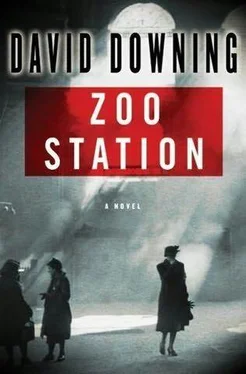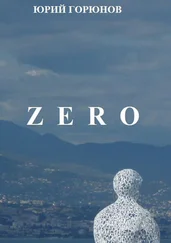David Downing - Zero Station
Здесь есть возможность читать онлайн «David Downing - Zero Station» весь текст электронной книги совершенно бесплатно (целиком полную версию без сокращений). В некоторых случаях можно слушать аудио, скачать через торрент в формате fb2 и присутствует краткое содержание. Жанр: Шпионский детектив, на английском языке. Описание произведения, (предисловие) а так же отзывы посетителей доступны на портале библиотеки ЛибКат.
- Название:Zero Station
- Автор:
- Жанр:
- Год:неизвестен
- ISBN:нет данных
- Рейтинг книги:5 / 5. Голосов: 1
-
Избранное:Добавить в избранное
- Отзывы:
-
Ваша оценка:
- 100
- 1
- 2
- 3
- 4
- 5
Zero Station: краткое содержание, описание и аннотация
Предлагаем к чтению аннотацию, описание, краткое содержание или предисловие (зависит от того, что написал сам автор книги «Zero Station»). Если вы не нашли необходимую информацию о книге — напишите в комментариях, мы постараемся отыскать её.
Zero Station — читать онлайн бесплатно полную книгу (весь текст) целиком
Ниже представлен текст книги, разбитый по страницам. Система сохранения места последней прочитанной страницы, позволяет с удобством читать онлайн бесплатно книгу «Zero Station», без необходимости каждый раз заново искать на чём Вы остановились. Поставьте закладку, и сможете в любой момент перейти на страницу, на которой закончили чтение.
Интервал:
Закладка:
“You’re welcome,” Russell said, and resumed his ascent.
His room was sweltering, but mercifully smoke-free. Guessing that the skat game still had a couple of hours to run, he threw one window wide and gazed out across the rooftops. In the far distance the red light atop the Funkturm winked above the roofscape.
He sat down at the typewriter, inserted a sheet of paper, and reminded himself that the letter he was about to write was-as far as the Soviets were concerned-just a long-winded way of saying yes. His real audience was the Gestapo.
Play the innocent, he thought. The Gestapo would think he was trying to fool the Soviets, and assume he was just being cynical.
He began by asserting the happy coincidence that National Socialism and the Union of Soviet Socialist Republics had one crucial word in common-socialism. That should give them both a laugh, he thought. They might seem like enemies, he continued, but clearly they had something important in common-socialism’s determination to serve all the people. What could serve the people better than peace? And what served peace better than mutual understanding? If the Soviet people were offered, in a series of articles, a clearer idea of how much National Socialism had achieved for ordinary German people, then the chances of peace were bound to be enhanced. As an Englishman with a long experience of Germany he was ideally placed to explain it to foreigners. And he had a strong personal reason for desiring peace-if war came, he added pathetically, he and his German-born son might be separated for years and years. “Here I am,” he murmured to himself, “a propaganda tool for the taking.” The Gestapo would lap it up.
He copied the address from Shchepkin’s note onto an envelope, unearthed a stamp from the table drawer, and perched the completed missive on his typewriter. Hearing the sounds of departing concierges floating up from the courtyard he made a dive for the window and pulled it shut.
Bed, he thought. The bathroom on the floor below which he shared with McKinley and two other men-a stationery rep from Hamburg and a waiter from the Harz Mountains-was empty for once, though the strong smell of McKinley’s pipe smoke suggested a lengthy occupation earlier that evening. There was still light under the American’s door, and Russell could hear the soft clicking of his typewriter-the newer machines were much quieter than his own antique.
Back in bed, he re-read Paul’s postcard and resumed reading the detective novel he had forgotten to take to Danzig. Unable to remember who anyone was, he turned out the light and listened to the muffled hum of the traffic on nearby Lindenstrasse. The Fьhrer was probably allowed to sleep with his windows open.
He spent the next two days looking after business. Wednesday and Thursday morning, he made the long trek out to Friedrichshain for two 90-minute sessions with the Wiesner girls. The elder daughter Marthe was a bit shy at first, but Ruth’s enthusiasm proved infectious enough to bring her out. The two of them knew very little English, but they were a joy to teach, eager to learn and markedly more intelligent than the spoiled daughters of Grunewald and Wilmersdorf whom Russell had taught in the past.
This was on the Wednesday-the following day both girls looked as though they’d seen a ghost, and Russell wondered whether they’d had bad news from Sachsenhausen. When he asked if they were all right, he thought Marthe was going to cry, but she took a visible grip on herself and explained that her brother had come home the previous evening.
“But that’s wonderful…” Russell began.
“He doesn’t seem like Albert,” Ruth broke in, looking over her shoulder at the door through to the other rooms. “He has no hair, and he doesn’t say anything,” she whispered.
“He will,” Marthe told her sister, putting an arm round her. “He’s just seen some terrible things, but he hasn’t been hurt, not really. Now come on, we have to learn English. For everyone’s sake.”
And they did, faster than any pupils Russell could remember. Neither mother nor brother emerged from the other rooms, and Doctor Wiesner was out on both days. On the Thursday he left Russell a small amount of marks and three stamps in an envelope on top of the latest Stanley Gibbons catalogue from England. Russell didn’t bother to check the listings.
Wednesday afternoon, he had typed out the stamp wars article and stuck two copies in the red air mail box by the Hotel Bristol entrance on Unter den Linden. Thursday morning, a telegram arrived from his London agent pointing out the need for exclusive photographs with his piece on Hitler’s new Chancellery, and that afternoon Russell dragged himself out to a photographic studio in the wilds of Neukцlln, only to discover that the photographer in question, a Silesian named Zembski whom he’d used in the past, had just lost his official accreditation after starting a brawl at one of Goering’s hunting parties. Zembski weighed over 200 pounds, and could hardly be smuggled into the Fьhrer’s new insult to architecture, but he did prove willing to rent out one of his better cameras. After a short instruction course Russell carried the Leica back to Hallesches Tor.
Frau Heidegger was waiting for him-or anyone-in the lobby. Her husband had been killed in the last war-“You might have been the one who shot him,” she frequently told Russell-and his brother had just been round to see her, full of useful information about the next one. She had assumed it would take place at some distance from her door, but this illusion had been cruelly shattered. “Cities will be bombed flat,” her brother-in-law had told her, “flat as ironing boards.”
Russell told her that, yes, English or French or Russian bombers could now reach Berlin, but that most of them would be shot down if they tried, because air defenses were improving all the time. She didn’t look convinced, but then neither was he. How many Europeans, he wondered, had any idea what kind of war they were headed for?
Fridaymorning was sunny and cold. After a late breakfast of rolls and coffee at a local cafй, Russell walked west along the Landwehrkanal. He wasn’t due to meet Effi for a couple of hours, so he took his time, stopping to read his morning paper on a bench near the double-decker bridges which carried the U-bahn and Reichsbahn lines over the torpid brown water. Coal-laden barges chugged by, leaving thin trails of oil in their wake.
He walked on for another kilometer or so, leaving the canal where it passed under Potsdamerstrasse. Almost exactly twenty years earlier, the bodies of Rosa Luxemburg and Karl Liebknecht had been fished out of waters close to this spot. The empty site on the other side of the road had been home to a synagogue until the previous November. Rosa, of course, had been everything the Nazis despised-a Jew, a communist, a woman who refused to stay home and rear children. Russell was surprised that no official celebration had been decreed for the anniversary of her death.
Cutting through side streets, he eventually reached the domed Ubahn station at Nollerndorfplatz, and started walking up Kleiststrasse toward the distant spires of the Kaiser Memorial church. As the Ubahn tracks beside him slid slowly underground, the shops grew progressively larger and richer, the awnings of the pavement cafйs more decorative. Despite the cold, most of the outside seats were occupied; men and women sat in their overcoats, or tightly wrapped in large blankets, chewing their cream cakes and sipping at their steaming coffees.
Both sidewalks and road were crowded now. Shoppers streamed in and out of the KaDeWe department store on Wittenbergplatz, cars and trams ran bumper to bumper on the narrower Tauenzienstrasse, jostling each other round the neo-Gothic Memorial Church, with its distressingly secular mosaics celebrating the highly dubious glories of past German emperors. Walking past it, and thinking about his conversation with Frau Heidegger, Russell had a sudden mental picture of jagged spires looming out of a broken roof, a future Berlin pre-figured in his memories of northern France.
Читать дальшеИнтервал:
Закладка:
Похожие книги на «Zero Station»
Представляем Вашему вниманию похожие книги на «Zero Station» списком для выбора. Мы отобрали схожую по названию и смыслу литературу в надежде предоставить читателям больше вариантов отыскать новые, интересные, ещё непрочитанные произведения.
Обсуждение, отзывы о книге «Zero Station» и просто собственные мнения читателей. Оставьте ваши комментарии, напишите, что Вы думаете о произведении, его смысле или главных героях. Укажите что конкретно понравилось, а что нет, и почему Вы так считаете.












